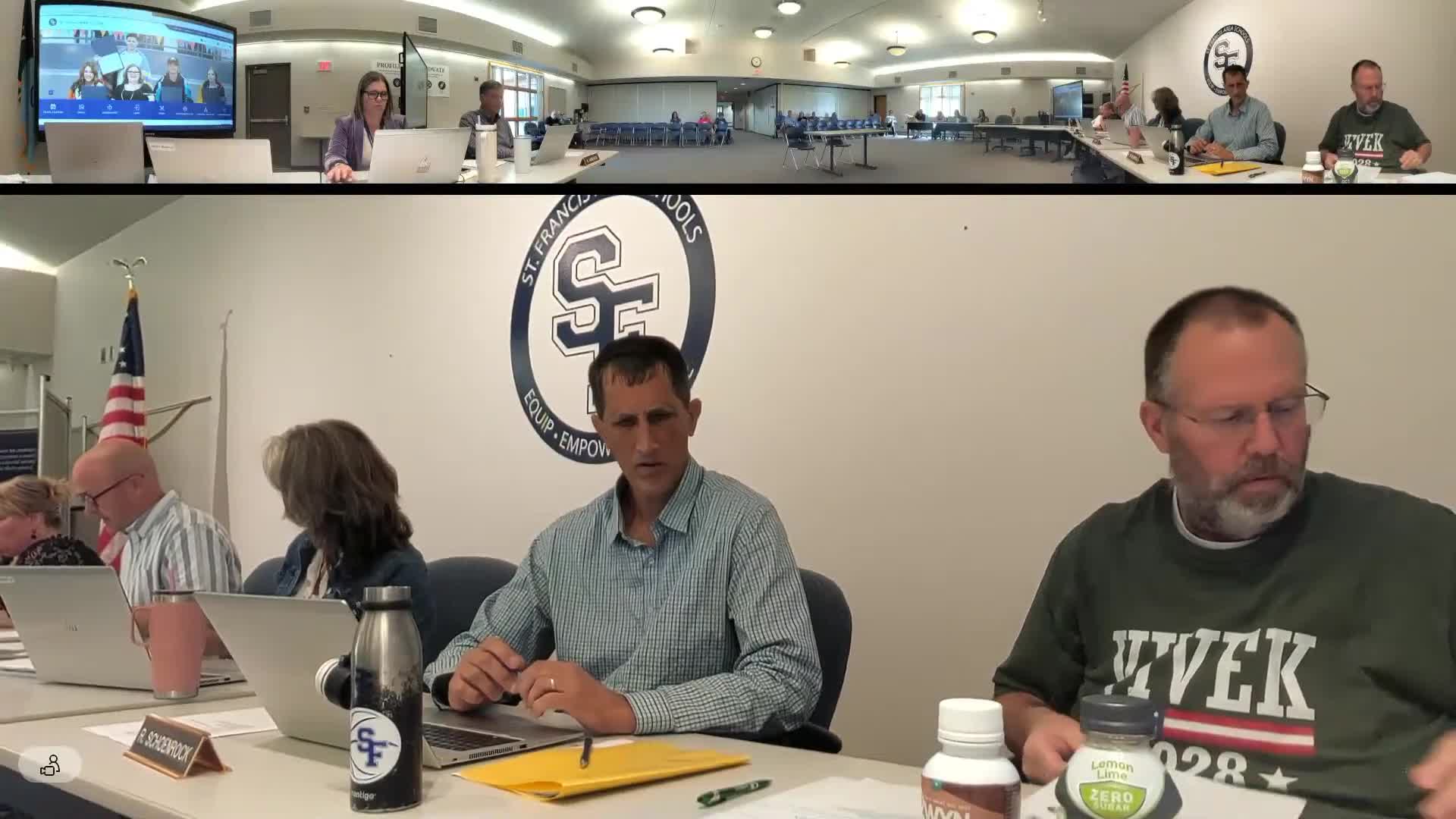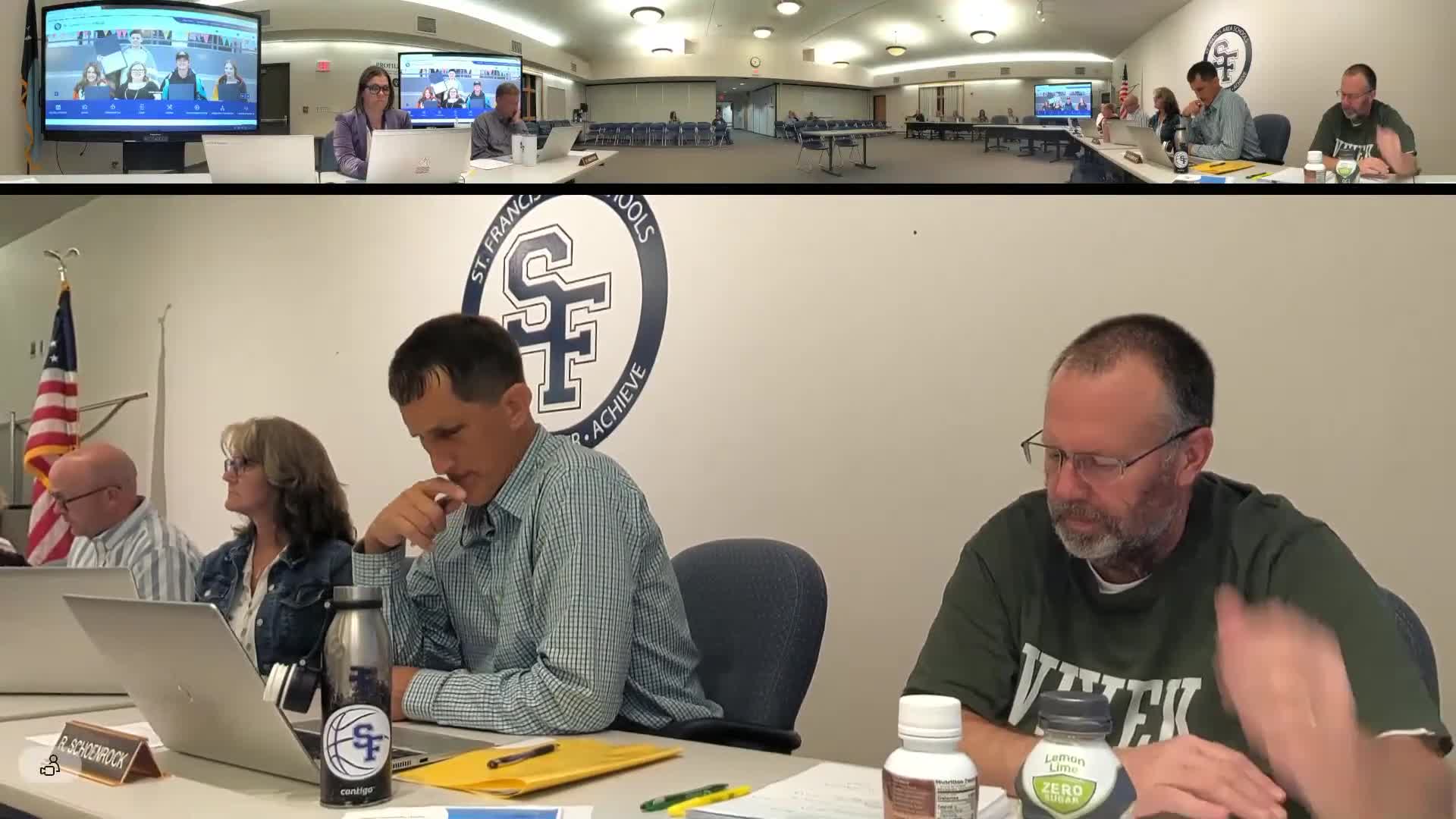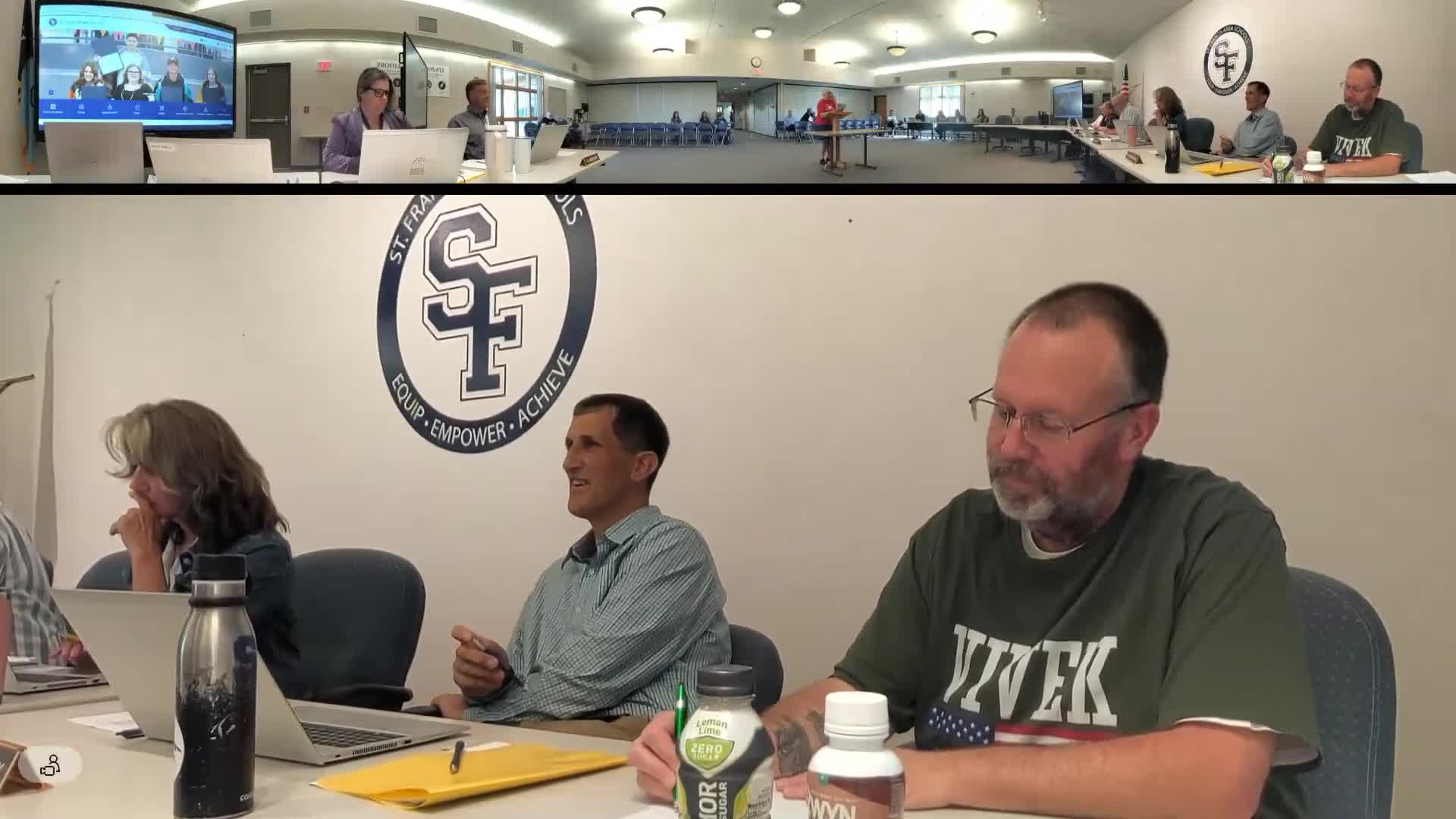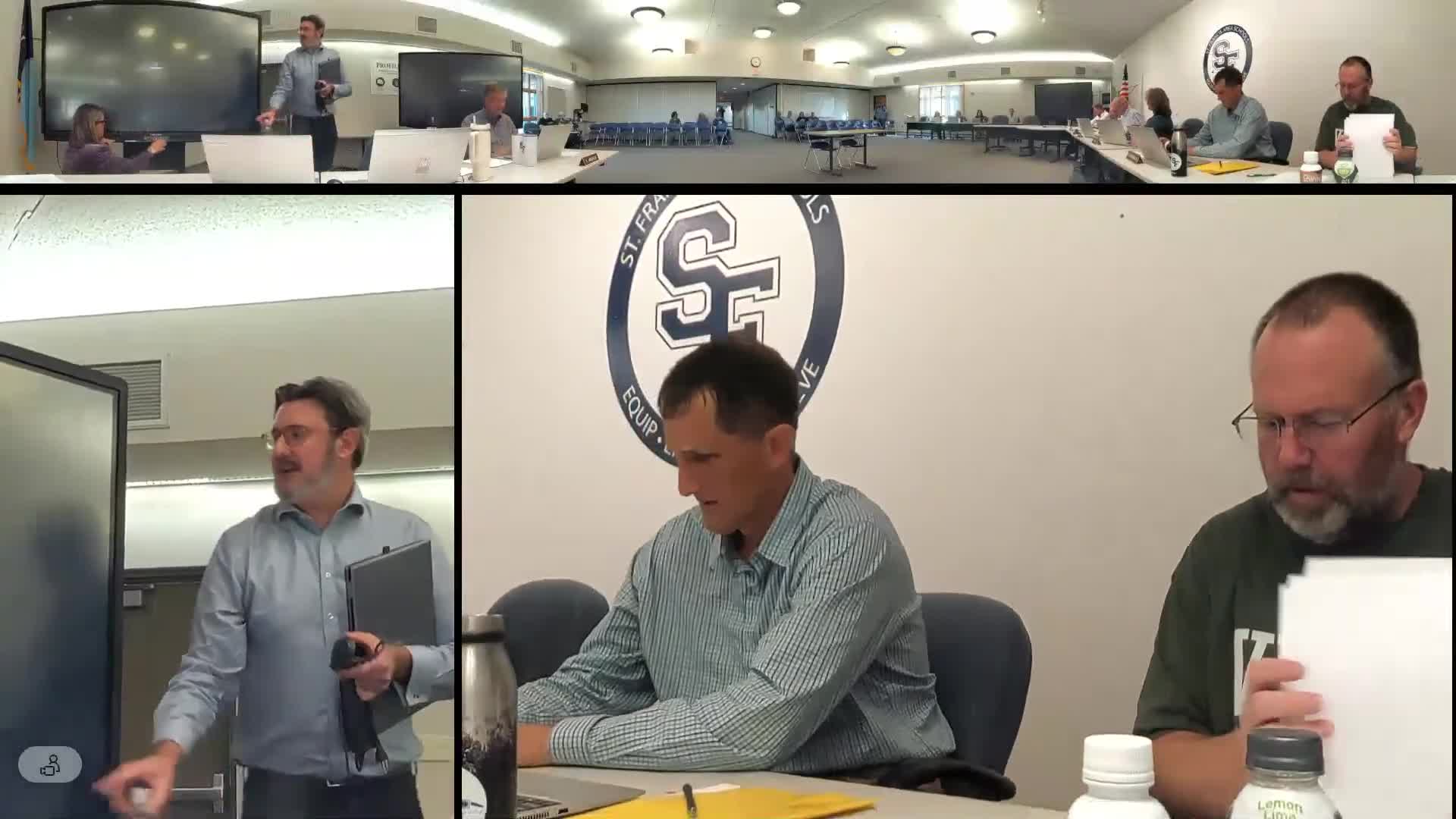Article not found
This article is no longer available. But don't worry—we've gathered other articles that discuss the same topic.

SiteLogic report finds $58M in immediate needs; board weighs options and timetable for long‑term facility maintenance plan

Votes at a glance — Saint Francis Area Schools, June 23, 2025

Public speakers urge board to reverse book removals and defend mission; community members endorse interim board candidate

